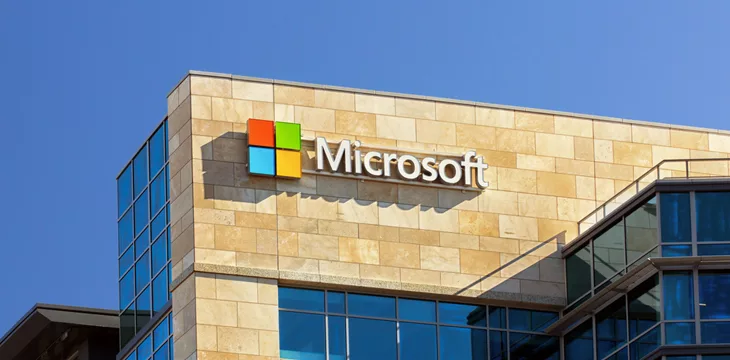|
Getting your Trinity Audio player ready...
|
In a significant move to advance technological innovation and economic growth in the Philippines, Microsoft (NASDAQ: MSFT) has announced a comprehensive set of initiatives aimed at accelerating the adoption of artificial intelligence (AI) in the country.
These initiatives were unveiled during the United States’ Presidential Trade and Investment Mission (P.T.I.M.) last week, reflecting a shared commitment between the U.S. and the Philippines to foster collaboration and development.
“We are deeply committed to bringing the benefits of AI to the Philippines to foster an environment where technology and human ingenuity thrive together,” Mary Snapp, vice-president of global strategic initiatives at Microsoft, said.
“These partnerships and programs reaffirm Microsoft’s dedication to copiloting the Philippines’ homegrown AI innovation, accelerating inclusive growth and development, and ensuring the country will remain a vibrant hub of creativity and progress in years to come.”
Empowering women in tech
In its press release, Microsoft said it is embarking on a mission to empower Filipino women with AI and cybersecurity skills.
Through a partnership with the Philippines’ Technical Education and Skills Development Authority (TESDA), Microsoft aims to equip over 100,000 women learners with the knowledge and expertise needed to thrive in the digital age.
These training programs, developed in collaboration with educational institutions and corporate partners, will not only enhance employability but also fortify cyber resilience within communities.
Partnerships for progress: Driving AI integration in public services
Microsoft said its efforts to drive AI adoption in the Philippines are grounded in strategic partnerships with key government agencies.
Collaborating with institutions such as Bangko Sentral ng Pilipinas (BSP), the Department of Budget and Management (DBM), and the Department of Trade and Industry (DTI), Microsoft said it aims to integrate AI-powered solutions to streamline citizen services and optimize operational efficiency.
Integrating Microsoft 365 Copilot into government operations represents a significant step towards enhancing service delivery and responsiveness.
By leveraging AI capabilities, these agencies seek to revolutionize processes, from budget management to trade facilitation, ultimately driving economic growth and public satisfaction.
Transforming education
Microsoft announced plans to deploy an AI-powered reading tool to aid 27 million Filipino students.
This initiative responds to concerns highlighted in a 2022 World Bank study, revealing significant literacy challenges among Filipino youth.
By leveraging AI-powered tools such as the Reading Progress tool, Microsoft reiterated its aims to enhance literacy and learning outcomes for millions of Filipino students.
Integrated into Microsoft Teams, this innovative tool provides personalized support to students, tracking reading fluency and pronunciation to facilitate academic success.
Microsoft’s collaboration with the Department of Education (DepEd) also underscores its commitment to bridging the digital divide and promoting inclusive education.
Building a skilled workforce
In partnership with the IT and Business Process Association of the Philippines (IBPAP), Microsoft spearheads efforts to enhance AI competencies within the Information Technology and Business Process Management (ITBPM) sector.
In the same press release, Microsoft said it aims to equip organizations with the skills and capabilities needed to harness the full potential of AI technology.
These initiatives not only enhance the competitiveness of Filipino businesses but also position the country as a hub for innovation and technological excellence in the global market.
Closing the connectivity gap
In tandem with efforts to drive AI adoption, Microsoft is committed to closing the connectivity gap in the Philippines.
Through partnerships with organizations such as Kacific Broadband Satellites and Unconnected.org, Microsoft aims to expand access to high-speed internet in underserved communities nationwide.
In order for artificial intelligence (AI) to work right within the law and thrive in the face of growing challenges, it needs to integrate an enterprise blockchain system that ensures data input quality and ownership—allowing it to keep data safe while also guaranteeing the immutability of data. Check out CoinGeek’s coverage on this emerging tech to learn more why Enterprise blockchain will be the backbone of AI.
Watch: AI Forge Masterclass—Why AI & blockchain are powerhouses of technology

 07-06-2025
07-06-2025 





